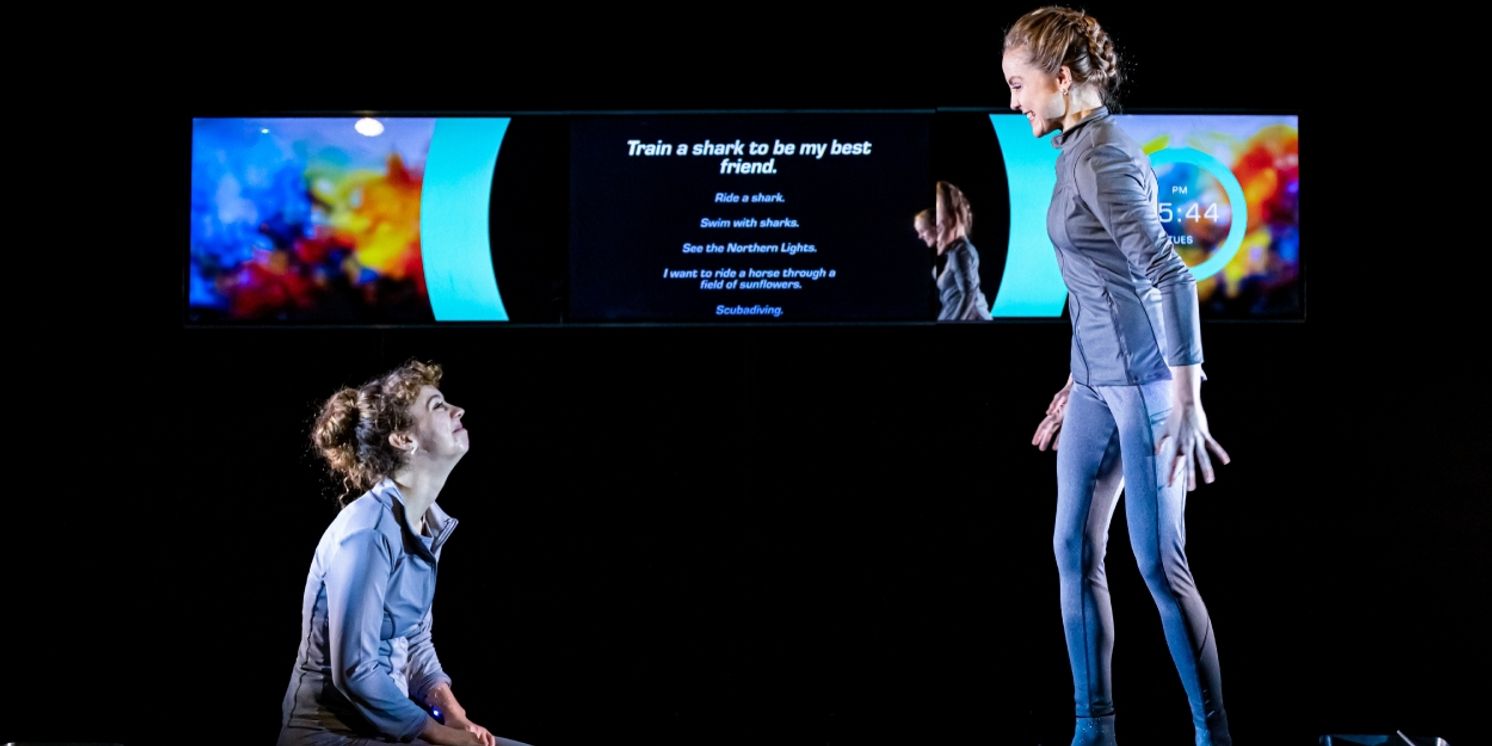Review: GOOD DAY, VAULT Festival
A futuristic dystopia questions the meaning of life in this timely exploration of the right to die that doesn't quite analyse its arguments.

![]() It's October 2555; Artificial Intelligence and androids are an essential part of society. Thanks to Mor2Life, humans are now immortal. The system stops the ageing process entirely, immediately heals every ailment, and grants people the gift of eternity. Zara is in her 530s, she's done it all and now wants to die. In order to do so, she has to undergo a 12-month psychological evaluation before her chip is deactivated and she can be euthanised.
It's October 2555; Artificial Intelligence and androids are an essential part of society. Thanks to Mor2Life, humans are now immortal. The system stops the ageing process entirely, immediately heals every ailment, and grants people the gift of eternity. Zara is in her 530s, she's done it all and now wants to die. In order to do so, she has to undergo a 12-month psychological evaluation before her chip is deactivated and she can be euthanised.
Daniel Bainbridge and Cam Scriven's play speculates a futuristic dystopia where it's become relatively impossible to pass away. Good Day essentially asks whether the meaning of life ultimately lies in one's demise. A deathless reality and the guarantee of forever made the main character unwilling to settle for imperfect romantic partners, she's bored and has tried everything there is to try, so she wants to end it all.
Marlie Haco's direction is dynamic but relies on its visuals and the show's premise more than its script. Creative captions designed by Dan Light accompany the action on a long line of screens that backs the actors while neon lights by Alex Forey give it an Asimovian vibe. The trio of characters are all dressed in light grey polyester, a coldness that's echoed all around them while a small glow on their left wrist acts as the Mor2Life device. The production value is truly striking.
The piece interrogates the very core of our existence, bringing up a line-up of themes that are as thought-provoking as they are difficult to explore in 75 minutes. Lateral reflections on the limitation of free will and the ethics of choosing euthanasia sit side by side with an interesting view of the simulation of consciousness and questions the rapid improvement of AI technology. In a world where ChatGPT is querying the purpose of human input, it's all quite timely, but Good Day ultimately doesn't analyse its arguments.
An unnecessary romance between Zara and a one-night-stand who initially understands her death wish becomes the main plot line, while the therapy sessions devised to dig into Zara's reasoning are limited to bland musings. Annie Davison, Sam Newton, and Olivia Barrowclough are an accomplished cast, filling the space with personality and verve.
Davison and Newton are well-suited as the couple: she is caustic while he is cheery, she fights for her right to die while he is adorably exuberant in his love of life. However, while Zara is supposed to be resigned and disillusioned, bored, and done with everything, Davison doesn't really look it. The character maintains that her happiness doesn't have an impact on her decision, but her underlying sense of frustration and discontent gets lost in the superfluous angles of the story.
They are joined by Barrowclough as the increasingly more aware robot Alex. She is incredible, to the point where she's able to deliver a scrumptious uncanny valley feeling whilst obviously being human. Her monotonous voice challenges her desire to be sentient and, by the end, everyone is sad to lose her to her planned deactivation. Alex's relationship with Zara turns out to be surprisingly touching and stronger than Zara's with Joe.
All in all, the piece is an exceptionally solid start for the team. Bainbridge and Scriven have the right ideas and Haco's striking direction complements their vision smoothly. They only need to take the plunge and dive deeper into the subject.
Good Day runs at the Network Theatre for VAULT Festival until 12 March.
Photo credit: Jake Bush
VAULT Festival has been left without a venue for next year. You can contribute to the #SaveVAULT campaign here.
Reader Reviews
Videos

